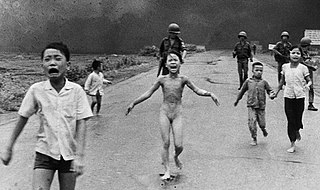A Quote by Soraya Sarhaddi Nelson
Having said that, people here [in Mecklenburg-Western Pomerania] watch the TV. And they hear critics of her policies talk about how more than a million people coming here last year from various war-torn countries and also seeking economic help are going to, like, destroy the fabric of the society.
Related Quotes
There are other concerns in this state [of Mecklenburg-Western Pomerania], which is one of the prettiest. It's also one of the poorest, where people here are making less than the national average. Unemployment is higher than the national average, and a lot of the young people, especially, have left because there just aren't jobs and that sort of thing. So you have that going on, the feeling that that hasn't really changed in years or at least with their help - with the last state government.
Having said that, Angela Merkel's electoral district is here [ in Mecklenburg-Western Pomerania].And so, if Chancellor Merkel loses here, her party, which has ruled in a coalition government for the last decade here with the Social Democrats - if they lose today, then it's really a very significant slap to the face, if you will. And this is coming at a time when the chancellor is being asked to decide whether she will stand for another term.
I like the iPhone, the iPad, all the various members of that family. But I like all the various technologies that are becoming available to make the world more accessible to people who are blind and with low vision. I also like that more and more people are committing themselves to close captioning so the deaf can really know what's going on. I like the position of making buildings more accessible by having ramps and various ways people who are paraplegic to be able to get around.
You can talk about things indirectly, but if you want to talk how people really talk, you have to talk R-rated. I mean I've got three incredibly intelligent daughters, but when you get mad, you get mad and you talk like people talk. When a normal 17-year-old girl storms out of the house or 15-year-old boy is mad at his mom or dad, they're not talking the way people talk on TV. Unless it's cable.
I think it's important for people to say look, what does each party and each candidate have to offer for you. If you want a better future that is going to be reliant on making smart economic policies, compare my husband's eight years with Ronald Reagan's eight years. 23 million new jobs, more than seven million people lifted out of poverty.
What we also have to recognize is that the deficit levels that I'm inheriting, over a trillion dollars, coming out of last year, that that is unsustainable. At a certain point, other countries stop buying our debt, at a certain point, we'd end up having to raise interest rates, and it would end up creating more economic chaos and potentially inflation.
What you hear in focus groups and conversations, people will give you 20 minutes of rage about how the borders are out of control. But then you start saying, practically, what are we going to do about it? What are we going to do about the 11 million here? What are we going to do to get some workers we need for the farms? Then people start having a normal conversation.






























